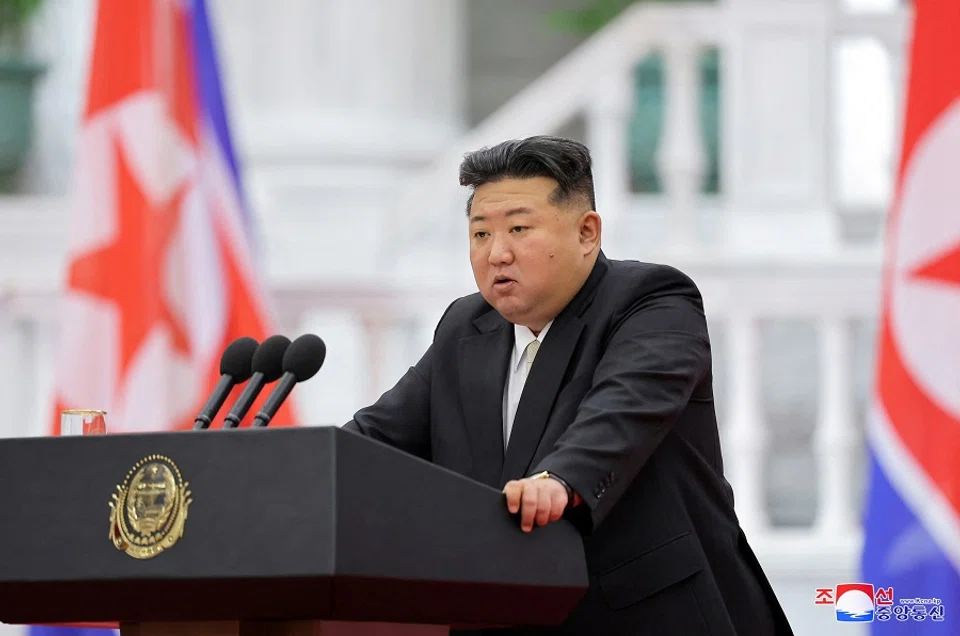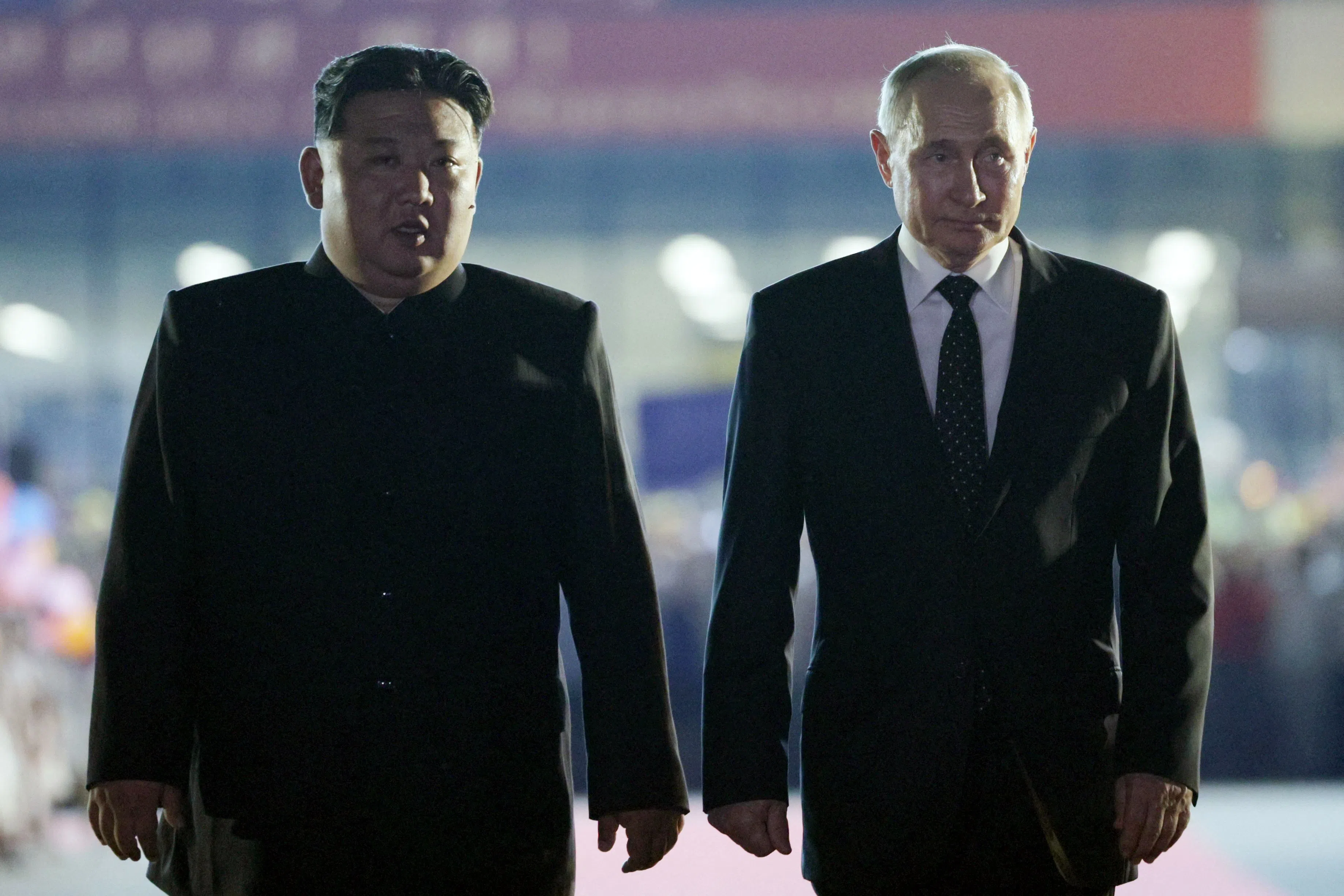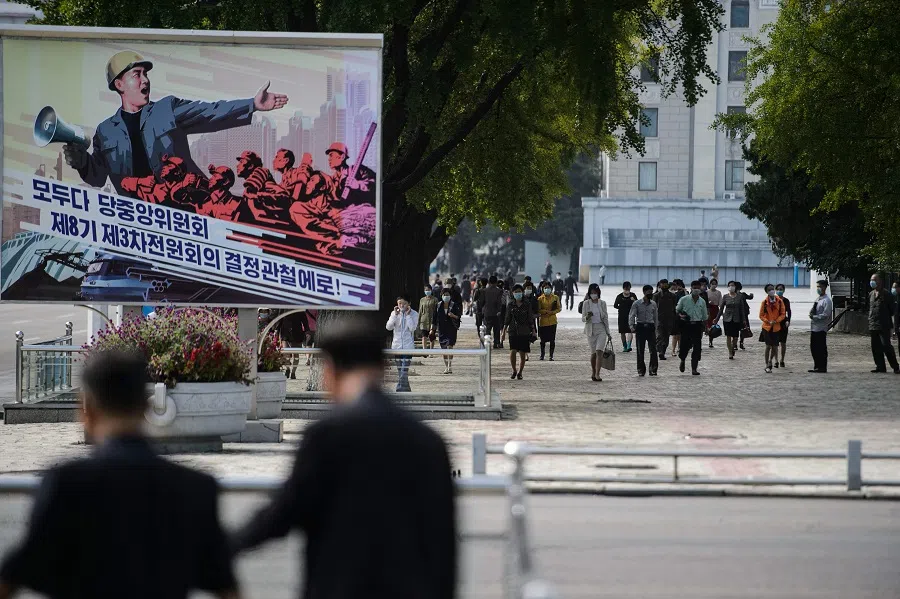North Korea’s new ‘enemy’: Why Kim Jong Un is turning against China
North Korea-China relations have actually been deteriorating for quite some time now, says academic Hao Nan. Add to that North Korea’s growing closeness with Russia and continued expansion of its nuclear and military capabilities, it is clear that North Korea plays a central role in East Asia’s state of flux.

In a striking geopolitical shift, North Korean leader Kim Jong Un has begun to openly criticise China, referring to the country as a “longstanding enemy” during comments made in mid-September 2024. This represents a significant departure from the traditional, if tense, alliance between the two communist nations, dating back to the Korean War.
While the roots of the rift are not new — Kim’s 2015 denunciation of China for opposing North Korea’s nuclear tests was a prelude — the recent escalation suggests that Pyongyang’s grievances with Beijing have deepened amid evolving regional dynamics.
Fears of China tightening economic noose
One of the key factors in this growing antagonism is North Korea’s economic reliance on China, which hit a staggering 98.3% of its trade volume in 2023. Despite this near-complete dependence, Pyongyang has grown increasingly resentful of Beijing’s tightening control over cross-border trade.
In recent months, China has imposed stricter smuggling regulations, targeting goods intended for the North Korean leadership and cutting off critical revenue streams. Further aggravating the situation, China has continued to repatriate North Korean workers in compliance with United Nations sanctions. These actions have added to North Korea’s already dire economic situation, amplifying frustration within Pyongyang’s leadership, especially at a time when China is withholding more direct forms of support.
North Korea, too, is navigating a delicate position, using its alliance with Russia to counterbalance its economic dependence on China and potential diplomatic overtures from the West.
China’s reluctance to fully support Kim Jong Un’s regime reflects Beijing’s cautious approach to regional stability. While China continues to provide some economic assistance to North Korea, its alignment with Pyongyang is growing increasingly strained due to Kim’s deepening ties with Russia.
Beijing is carefully balancing its interests, keen to avoid getting dragged into broader conflicts with the US and its allies while preserving its influence in North Korea. This balancing act, however, risks further alienating Pyongyang, which has become more dependent on Russia as it distances itself from China.
Closer relations with Russia a complication
North Korea’s growing alignment with Russia has added complexity to the regional dynamics. During Russian President Vladimir Putin’s visit to Pyongyang in June 2024, he pledged deeper military cooperation with North Korea, culminating in the announcement of a comprehensive strategic partnership treaty of a mutual defence alliance nature. However, Russia’s hesitancy to ratify this treaty until mid-October — four months after the initial agreement — has raised questions about Moscow’s long-term commitment.

Despite the delay, North Korea has shown its dedication to Russia by agreeing to send 12,000 soldiers to assist in the Ukraine war, with some reports alleging that North Korean troops are already engaged in combat operations. This partnership underscores Pyongyang’s pivot toward Russia, a relationship increasingly built on shared military and economic interests.
Yet even with North Korea’s military cooperation with Russia, both countries remain cautious. Moscow benefits from North Korean support in its war effort but is wary of provoking further international isolation. North Korea, too, is navigating a delicate position, using its alliance with Russia to counterbalance its economic dependence on China and potential diplomatic overtures from the West. The ongoing delay in treaty ratification reflects the risks both sides face in aligning too closely with one another.
This escalating confrontation, coupled with North Korea’s growing isolation from China and its volatile relationship with Russia, underscores the fragile state of East Asian security.
Not ruling out the US
Amid this realignment, there are signs that North Korea might still be open to exploring diplomacy with the US. The recent reopening of the Swedish embassy in Pyongyang — a diplomatic channel often used for engagement with the West — suggests that Kim Jong Un is leaving the door open for potential talks.
The US has made quiet overtures toward engagement, with rumours of possible economic incentives in exchange for nuclear de-escalation. However, North Korea’s nuclear ambitions remain a sticking point, and there is little indication that Pyongyang is willing to make significant concessions at this stage.

In fact, Kim Jong Un’s focus appears to be on expanding North Korea’s nuclear and military capabilities as a way to increase his regime’s leverage. Reports of preparations for another nuclear test highlight Kim’s determination to use nuclear brinkmanship to force negotiations on his terms. This strategy places North Korea at the centre of regional security concerns, compelling China, Russia, and the US to reconsider their approach to Pyongyang.
Kim’s recent constitutional amendment, which defines South Korea as a hostile state, formalises his policy advocacy of direct confrontation with Seoul since December 2023, effectively invalidating key non-aggression agreements such as the 1991 Basic Agreement and the 2018 Pyongyang Declaration.
This move, coupled with orchestrated outrage over South Korea’s alleged drone intrusion, the symbolic destruction of sections of inter-Korean roads and railways, displays of artillery readiness along the border, and reports of 1.4 million North Korean youths applying for enlistment, adds a new layer of complexity to the regional dynamics, further escalating tensions on the Korean peninsula.
In response, South Korea has vowed to pursue regime change in the event of an attack by the North and has intensified military cooperation with the US, Japan, and NATO members, forming a new regional security framework aimed at countering North Korea’s growing threat.
A pivotal moment
This escalating confrontation, coupled with North Korea’s growing isolation from China and its volatile relationship with Russia, underscores the fragile state of East Asian security. While much of this can be seen as the carefully orchestrated brinkmanship that North Korea has long employed, the coming months — as the next US presidential election takes place and the new US president is installed — will be crucial as Kim navigates a shifting regional landscape of alliances and hostilities.
North Korea’s deteriorating ties with China, its formal enmity with South Korea, and its deepening military alignment with Russia place Pyongyang at a pivotal moment, requiring delicate tightrope manoeuvres. Whether Kim can turn these challenges into strategic opportunities or whether North Korea will spiral deeper into isolation remains uncertain. One thing is clear: the balance of power in East Asia is in flux, and North Korea is playing a central role in this transformation.





